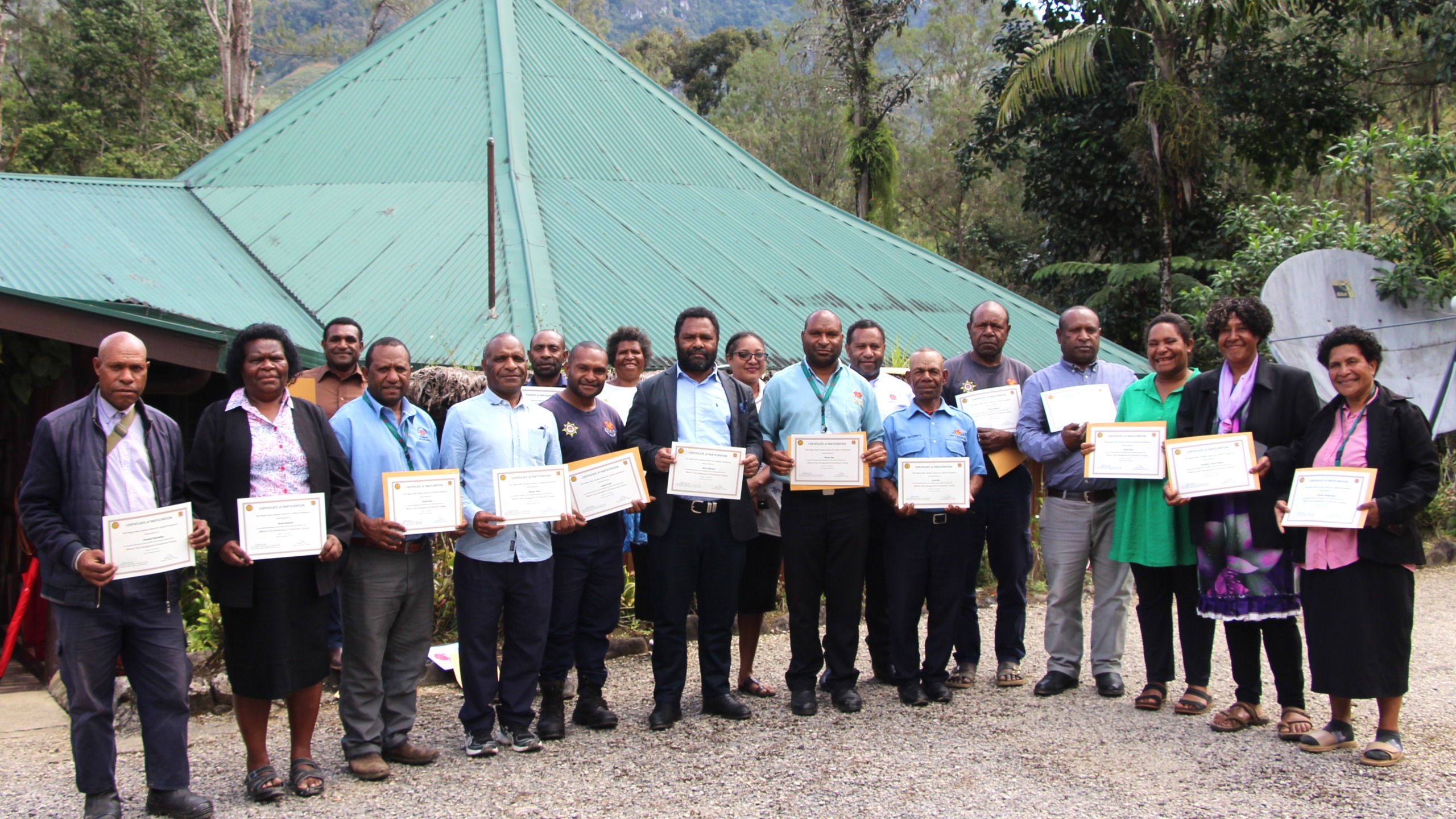PNGCJE rolls out training programs for Court Officers in the Provinces
The Papua New Guinea Centre for Judicial Excellence (PNGCJE) has conducted and facilitated training programs for the NJSS Court Officers across nine (9) provinces. The training programs were aimed at strengthening the administrative and personal productivity capacities for the National Court, District court staff and Law and Justice Sector agencies. These training programs commenced in February and were delivered in the following provinces: West New Britain (Kimbe), Milne Bay (Alotau), Manus (Lorengau), West Sepik (Vanimo), Western (Daru), Eastern Highlands (Goroka), Simbu (Kundiawa), Southern Highlands (Mendi), and Enga (Wabag), with a combined total of 213 participants.
Mr. Peter Michael, PNGCJE’s Program Officer Magisterial Services and lead facilitator said the training programs focused on two core sessions: Effective Time Management & Productivity and Basic IT Training.
The Effective Time Management & Productivity training sessions consisted of:
- Time Management;
- 7 Habits of Highly Effective People; and
- Stress Management.
“This training session provides practical tools for managing tasks, prioritizing workloads, and addressing inefficiencies in the workplace,” Mr. Michael said. “Importantly, it also focuses on understanding and managing workplace stress to support the mental well-being of our staff.”
This training session was facilitated by Ms. Emmah John (PNGCJE Program Officer – NJSS, Ms. Olivia Paru (PNGCJE Executive Officer) who co-facilitated on behalf of Mr. Tongia Kekebogi (PNGCJE Program Officer – Judicial), with Mr. Michael.
The Basic IT Training session, facilitated by Mr. Barry Ludin, PNGCJE’s IT Manager focused on strengthening digital skills essential to today’s modern court operations. These sessions included:
- Basic IT Support;
- MS PowerPoint;
- MS Teams;
- MS Outlook 365; and
- Zoom meeting applications
“The aim was to improve the digital literacy of court officers so they can confidently use modern tools in court operations,” Mr. Michael said.
He added that the dual-focus training approach reflects the evolving demands placed on court officers in today’s digital, high-pressure environments.
“These trainings sessions are not just about skills development; they are more about empowering our staff to manage their time and mental health more effectively in an increasingly digital and fast-paced judicial environment.”
“These sessions will enable staff to navigate digital tools more efficiently, improving productivity and confidence in technology-driven court processes” Mr. Michael stated.
Participants have responded positively to the initiative, describing the sessions as timely, relevant, and impactful and many reported immediate improvements in their day-to-day performance.
Mr. Moses Epa, a District Court staff member from Mendi, emphasized the need for such trainings to continue, especially in remote locations. “There needs to be more training like this throughout the district courts, especially in areas like ours that are far from the main centres,” he said. “These kinds of programs not only improve how we work, but they also help us manage our daily lives better. It’s encouraging and empowering to see that NJSS and PNGCJE are committed to our professional development.”
Mr. Henry Minape, Assistant Registrar at the Mendi National Court, also expressed his appreciation, adding that these trainings are essential for the efficient and effective functioning of the courts.
Mr Micheal and his team will conduct and facilitate more trainings to cover other provincial court centres to ensure all court staff throughout the country participate and benefit from the training programs.




